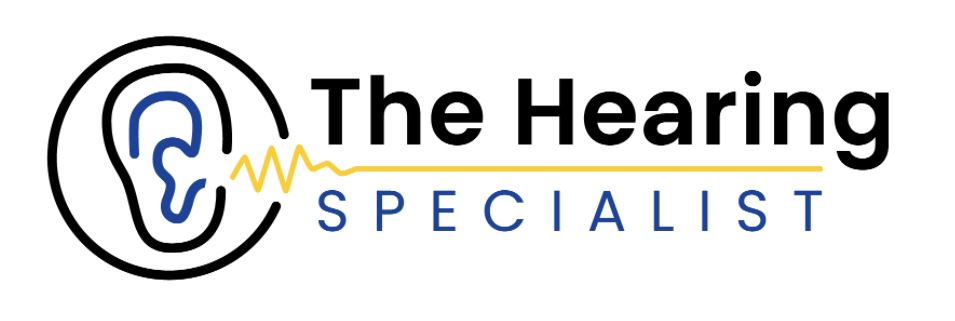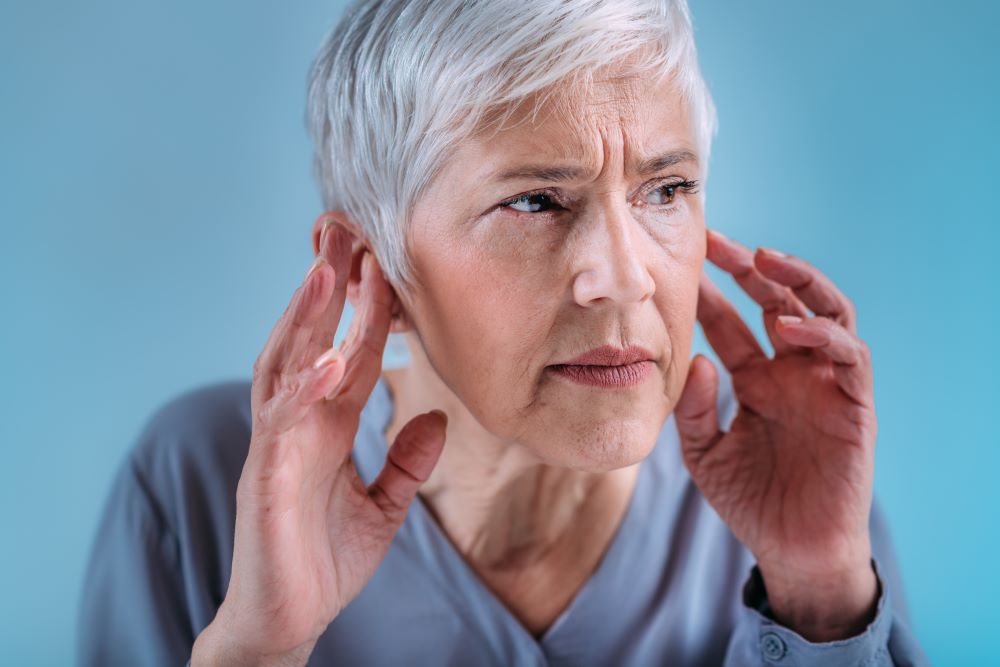Just like finding your first grey hair, changes in hearing often creep in gradually, so subtly, you might not notice them at first. Maybe you’re asking people to repeat themselves more often or struggling to follow conversations in noisy places. These early signs can be easy to overlook, but they’re important to recognise.
In this article, we’ll explore the common early indicators of hearing loss, why addressing them sooner rather than later matters, and what treatment options are available for hearing loss.
Early signs of hearing loss
Sounds seem muffled, especially higher-pitched voices
One of the first signs of age-related hearing loss is a loss of clarity, particularly with high pitched sounds. That’s because the tiny hair cells in your cochlea (the part of the inner ear that detects sound) are often the first to deteriorate. You might notice you’re struggling to understand women or children or missing everyday sounds like birdsong or the beep of your microwave. It’s not that the volume has vanished, just the sharpness.
Conversations become hard to follow in noisy places
Restaurants and busy social settings can become a real challenge. Background noise, often lower pitched, starts to overpower speech, which contains many high frequency sounds like “f,” “s,” and “th.” Your ears may still pick up the noise, but the words get lost. On top of that, natural changes in how your brain processes sound can make filtering out distractions more difficult.

Socialising leaves you unusually tired
When hearing starts to fade, your brain works overtime to fill in the blanks during conversations. That constant effort to keep up, especially in group settings, can leave you mentally drained. If you find yourself feeling exhausted after social events, your ears might be making your brain work harder than it should.
You focus on mouths instead of eyes
If you catch yourself watching people’s lips instead of maintaining eye contact, it might be a subconscious coping strategy. When hearing weakens, your brain compensates by relying more on visual cues. Sounds like “p” and “f” have distinct lip shapes, so you may be ‘reading’ speech without even realising it.
Phone calls become frustrating
Phones strip away helpful visual cues and often compress sound quality. If you’re mishearing words or finding phone conversations unusually taxing, it could be because consonant sounds, key to understanding speech, are slipping past you. Without seeing facial expressions or gestures, your brain has less context to work with.

You hear ringing or buzzing no one else does
Tinnitus, the perception of sound without an external source, is a common early sign of hearing loss. It often presents as ringing, buzzing, or whistling in the ears. It’s your auditory system trying to make sense of missing input, sometimes picking up internal sounds like blood flow instead. Around 30% of people in the UK experience tinnitus at some point, but it’s significantly more common, up to 80%, in those with severe hearing loss.
Why is it important to address early hearing loss?
Catching hearing loss early can make a big difference. Because hearing loss often develops gradually, it’s easy to brush off the early signs. But left untreated, it tends to get worse over time. Acting early can help preserve your hearing, and your overall well-being.
When your ears don’t catch every sound, your brain works harder to fill in the gaps. This extra strain can impact cognitive function and even increase the risk of memory problems over time. Addressing hearing loss early helps ease that mental load and keeps your mind sharper for longer.
There’s also a strong link between untreated hearing loss and social withdrawal. Struggling to follow conversations can lead to frustration, isolation, and even mental health issues like anxiety or depression.
Most importantly, treating hearing loss can greatly improve your quality of life, whether it’s hearing your grandchild’s laugh, enjoying your favourite music, or simply taking part in everyday conversations with ease.

What Are the Treatment Options for Hearing Loss?
The right treatment depends on the type and severity of your hearing loss. Fortunately, there are several effective options available:
Hearing Aids
For mild to moderate hearing loss, hearing aids are the most common solution. These small, discreet devices amplify sound, making it easier to hear conversations and everyday noises. Modern hearing aids are more advanced than ever, they can be fine-tuned to suit your specific needs, and many offers smart features like Bluetooth connectivity and noise filtering.
Cochlear Implants
If hearing loss is more severe or profound, cochlear implants may be recommended. Unlike hearing aids, these devices bypass the damaged parts of the ear and directly stimulate the auditory nerve. They require surgery but can offer life-changing results for those who no longer benefit from traditional hearing aids.
Surgical Treatments
In cases of conductive hearing loss, where sound struggles to pass through the outer or middle ear, surgery might be an option. Procedures could involve repairing a perforated eardrum, addressing abnormalities in the ear bones, or removing obstructions like benign growths.
How can I prevent hearing loss from worsening?
While age-related hearing changes are a natural part of life, there’s still plenty you can do to protect your hearing and slow down further decline.
One of the most effective steps you can take is protecting your ears from loud noise, which is one of the leading causes of preventable hearing loss. Whether you’re at a concert, using power tools, or working in a noisy environment, ear protection like earplugs or earmuffs can make a big difference.
Be mindful of your headphone habits, too. Listening to music at high volumes, especially through headphones, can damage your hearing over time. Try following the 60/60 rule: keep the volume under 60% of the maximum, and limit listening to no more than 60 minutes at a time. Giving your ears regular breaks helps them recover and stay healthy.
Don’t skip routine hearing checks. Just like eye exams or dental visits, hearing tests should be part of your regular health routine, especially if you’re over 50, work in noisy settings, or have a family history of hearing loss. Early detection means early action, and that can make a big difference in preserving your hearing.
If you’ve noticed a recent change in your hearing, however small, it’s worth getting checked. Contact us today and take the first step toward protecting your hearing for the future.


